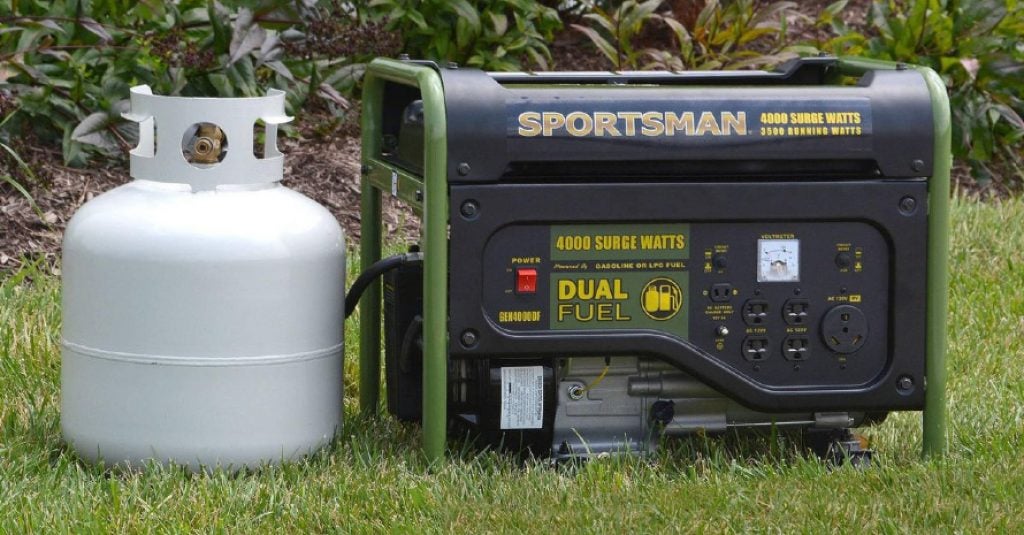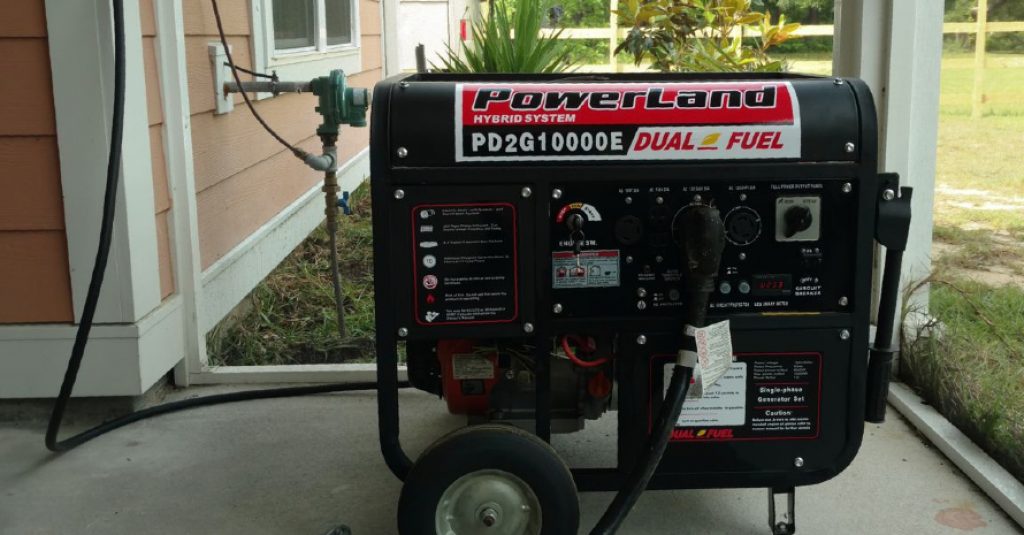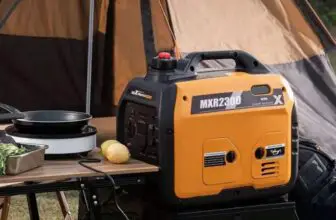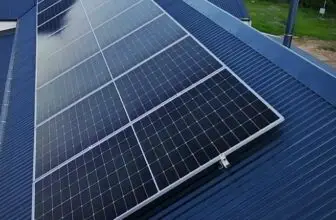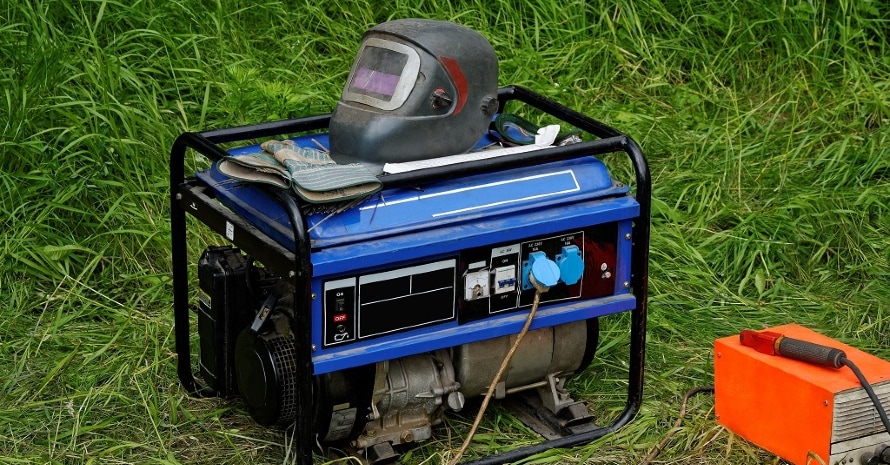
A generator is a device that converts mechanical energy into electrical energy. Generators can be powered by electricity, steam, wind, water, solar power, and even the flexing of muscles. You can find different types of generators in the market: propane generators, petrol generators, natural gas generators, and diesel or kerosene generators.
Generators Types
Contents
So, what types exist? Generators can be classified as portable, stationary, or portable/stationary. A portable generator is often powered by gasoline, propane, natural gas, diesel, or kerosene. It may be a small gasoline generator or a kerosene one. Portable generators are small enough to be moved from location to location by one or two people.
For example, a fuel-efficient portable generator can be used to power emergency lighting systems, medical equipment, heating, cooling, computers, or televisions.
As for stationary generators, they are installed in one place and are typically powered by natural gas, propane, or diesel. They have similar functions as mobile generators, except that they are firmly fixed to the ground. Stationary generators are used in power plants, factories, and government buildings.
Different types of generators can be used to provide electricity to homes, businesses, offices, schools, factories, hospitals, or anywhere else where there is a need for electricity during power outages caused by storms, floods, or other disasters.
What Is the Difference Between a Portable Generator and a Standby Generator?
Portable generators are smaller and lighter than standby generators and can be moved from one place to another. They can provide power during a power outage and in most cases, in an emergency. Portable generators are mainly used in the home, but they can also be used to power small appliances and tools and even be taken away for outdoor activities.
Standby generators are more expensive and larger than portable generators. They are usually installed in homes or offices and provide electricity when the main power supply is not available as well as portable types.
Standby generators are used in areas where power supply is not usually available. These areas include some distant homes hospitals, schools, businesses, etc. Standby generators are usually connected to the main power supply, but when this power supply is not available, generators tackle the problem.
Portable generators are more expensive than standby generators as they can provide power when there are no power sources nearby. Standby generators are more expensive than portable generators.
Generator Runtime
It is possible to measure the generator run time per gallon in hours or minutes. So, what does this mean? For example, a “17-hour” generator can run for:
- 17 hours at 50% load (8.5 hours at full load)
- 17 hours at 75% load (11 hours at full load)
- 17 hours at 90% load (13.5 hours at full load)
The point is that different loads require different amounts of power and different amounts of fuel. For example, a refrigerator uses more power than a small light bulb, and it is always on.
And that is why the run time of a generator is measured as a percentage of its rated capacity.
Power ratings are measured in watts, kilowatts, or megawatts. The example above is a 7500-watt generator that can run for 8.5 hours at 50% load, 11 hours at 75% load, and 13.5 hours at 90% load. It may confuse you, especially if you buy your first generator.
How Long Will the Generator Operate on 5 Gallons of Gas?
When it comes to generator runtime, the question of how long will a generator run on 5 gallons of gas, is not really relevant. As we wrote above, it depends on both the load and the generator model itself. Power generation duration varies due to the load and the generator’s capacity.
For example, if the system is running at full load, your generator will consume approximately 1½ gallons of gas per hour. At ¼ load, it will consume approximately 1 gallon per hour. At ½ load, it will consume approximately ⅓ gallon per hour.
If you use the Standby Generator with the Power Supply Package, it will operate for approximately 2.5 hours on 5 gallons of gas. If you use the Standby Generator with the Charging Package, it will operate for approximately 8 hours on 5 gallons of gas.
How to Use the Generator?
First, make sure that your generator is in working order. If you haven’t been using it for a long time, you should have it serviced to make sure that the battery is charged and that the generator has no damage.
You should also check the gas supply, the fuel tank, the fuel line, the fuel filter, the fuel pump, and the fuel tank cap. Make sure that there are no rust or corrosion issues.
Next, you need to make sure that the gas supply is turned on. You should also have a look at the fuel gauge on the generator and check the oil. Some generators need oil added after a period of non-use. Read the generator’s manual to see how much oil you need to add.
When you’re ready to turn the generator on, start with just a small load. You shouldn’t overload it, thus you need to start with the least power-hungry items. If you need to run a heater, be sure to keep it in a well-ventilated room so that the fumes don’t build up in the room.
The Generator Doesn’t Work – How to Fix It
If you have a generator that isn’t turned on, you’re not alone. Many people have generators that fail to start in an emergency situation, and it’s usually because the battery is dead.
If your generator runs on gas, then you can use it to charge the battery. You’ll need to hook the generator up to the battery (following the generator’s instructions) and then start it. Then, flip the switch to turn the generator off.
You also need to make sure that your generator is set up properly in an emergency situation.
FAQ
Can I leave the generator running overnight?
Is it safe to leave a generator on all night? The answer is yes. Anyway, keep in mind that the generator will not last long if you do not follow the instructions and precautions or if you do not take care of it. Also, it’s better to shut it down if it is not in use for a long period of time.
How long will 10 gallons of propane last on the generator?
As written above, it depends on several factors. Outside temperature and generator wear out will determine how long your 10 gallons of propane will last. On average, if you use the generator at full power, then 10-gallon propane will last for about 8 hours.
What size of generator would I need to run a whole house?
This is not an easy question to answer. Many factors come into play. The size of your house, the number of electrical appliances, the wattage of the appliances, the length of time you need power, and the distance from your house to the generator mean. It’s better to do your research before purchasing a generator. This way, you will find out if there is a need for a large generator or if you can get by with a smaller one.
Conclusion
A generator is a tool used to supply electricity when you’re in a location with no power available. It’s also used in emergencies of a power failure. You can use a generator at home and office, or in a remote location where there’s no electricity line.
A generator is a tool that can power a wide range of appliances and devices. It’s a must-have if you want to have a backup power source.
When buying a generator, you should definitely specify how much gas a generator uses at full or partial load and how long it will last. And for this, you need to know how much power will be consumed by the appliances powered by the generator.
Choosing the right generator is not an easy task and it’s not something that you can do without proper research. As we’ve discussed in the article, there is a wide range of generators available in the market. You need to know what you’re looking for when purchasing a generator.

